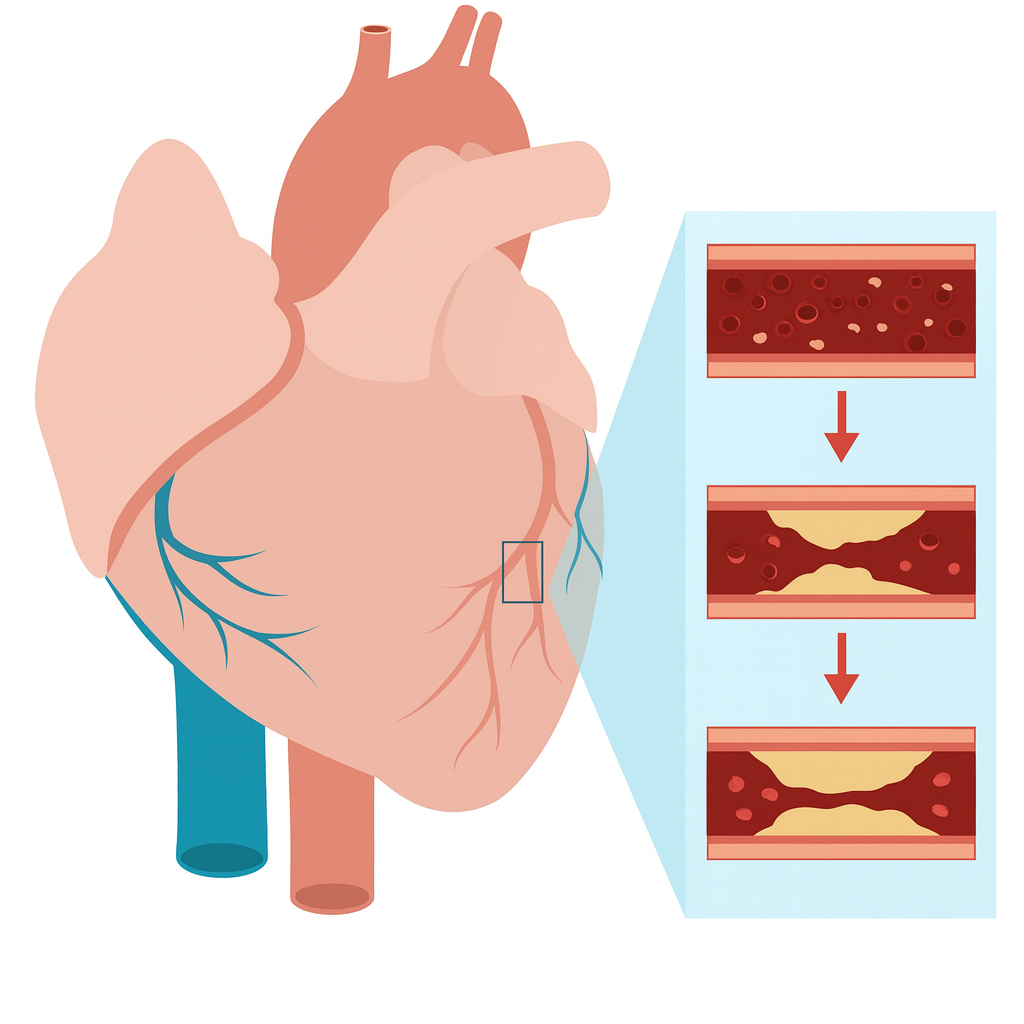The heart is one of the most important organs in the body, pumping blood and oxygen to keep everything working.
Heart disease remains a leading cause of illness and death in the UK, knowing when to get your heart checked can make a big difference. Many problems can be treated more effectively if they are found early. A heart check can spot risk factors, detect hidden issues, and give you peace of mind about your health.
A heart check can include several different tests, depending on your age, medical history, and symptoms. The most basic checks are blood pressure and cholesterol tests, which help assess the risk of heart disease. Blood sugar tests can also be used to look for diabetes, which is closely linked to heart problems.
Other tests include electrocardiograms (ECG) to measure the heart’s electrical activity, echocardiograms to see how the heart muscle and valves are working, and scans such as CT or MRI for a more detailed look. A GP may also ask about lifestyle habits, family history, and symptoms such as chest pain or breathlessness.
Yes, sometimes it is still a good idea. Heart disease can develop silently without obvious symptoms. Risk factors like high blood pressure and high cholesterol often go unnoticed for years. Having a routine check, especially if you are over 40, can help pick up issues early. Even if you feel healthy, checks can provide reassurance and encourage good habits.

In the UK, people between 40 and 74 are eligible for an NHS Health Check every five years. This looks at blood pressure, cholesterol, weight, and lifestyle, giving an overall picture of heart health. Younger adults may also benefit from checks if they have risk factors such as diabetes, obesity, or a strong family history of heart disease.
Children and young people usually do not need routine heart checks unless there are symptoms or known conditions. However, if there is a family history of sudden heart problems at a young age, doctors may recommend screening earlier.

Some symptoms should never be ignored. Chest pain, pressure, or discomfort—especially if it happens during exercise—can be a sign of coronary heart disease. Shortness of breath, palpitations, fainting, or swelling in the legs may also point to problems. If you develop sudden or severe chest pain, you should call 999 immediately, as this could be a heart attack.
Even mild or occasional symptoms are worth discussing with a GP, as they may suggest further tests. Early treatment often means better outcomes.
The frequency depends on your age and risk factors. Most healthy adults only need checks as part of their routine NHS Health Check every five years from age 40. People with high blood pressure, diabetes, high cholesterol, or a family history of heart disease may need more regular reviews.
If you are on treatment for heart problems, your doctor will arrange follow-up checks to monitor your condition. These may happen once a year or more often, depending on your health.
Yes, family history is an important factor. If a close relative, such as a parent or sibling, developed heart disease at a young age, your own risk may be higher. In these cases, it is often advised to get checked earlier and more regularly. Doctors may also suggest specific tests based on your family’s medical history.
Definitely. Lifestyle has a big impact on heart health. Smoking, heavy drinking, poor diet, and lack of exercise all increase the risk of problems. Being overweight, having high stress levels, or living with conditions such as diabetes also raise the chances of developing heart disease. If these apply to you, your GP may recommend earlier or more frequent checks.
Both NHS and private options are available. NHS Health Checks are free for eligible age groups, but waiting times can vary for more detailed tests. Private heart checks are usually faster and may offer a wider range of tests, such as CT coronary angiograms or advanced blood tests. The choice often depends on your personal situation, budget, and how quickly you want results.

If results are normal, you may simply be advised to continue with healthy habits. If risk factors are found, lifestyle changes or medicines may be recommended. For example, statins can lower cholesterol, while blood pressure tablets reduce strain on the heart. If tests show more serious issues, you may be referred to a cardiologist for specialist care.
While checks cannot stop heart disease from developing, they can catch problems early and reduce the risks. For example, treating high blood pressure or high cholesterol in the early stages can prevent heart attacks and strokes later in life. Checks also give people the knowledge they need to make healthier choices, which has a big effect on long-term heart health.
Getting your heart checked is an important step in protecting your health. Most adults should start routine checks from the age of 40, but earlier testing may be needed if there are symptoms, family history, or lifestyle risks. Heart checks can be simple, quick, and highly effective in spotting problems before they become serious. Even if you feel healthy, it is worth considering, as many heart conditions develop silently. Acting early can make all the difference for your future health.
Disclaimer: Seonat provides general health information for educational purposes only. This content is not a substitute for professional medical advice, diagnosis, or treatment. Always seek the advice of your GP or another qualified health provider with any questions about a medical condition or before making health decisions.

Simplifying health information for those who need it most
Please note: we are not medical professionals, and the content on this website is for general information only. Always speak to a qualified healthcare provider for medical advice.